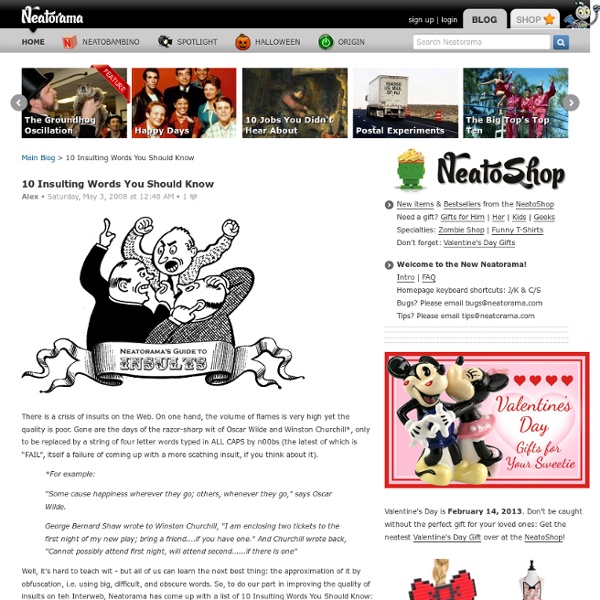10 Insulting Words You Should Know

drmardy.com: A web site for lovers of wit and wordplay
How To Create An Intriguing Inciting Incident
Every single element between the first page and the very last page of a screenplay is arguably the most important, salable thing about it. In this article, the beginning of the plot takes the number one spot. However, the plot really can’t begin being awesome until it is set in motion. That’s where the inciting event comes in. A good plot is everything that transpires in the screenplay and, if it’s captivating, will have an equally captivating inciting event. First, the reader/audience has to care about the character they’re following. Even if the main character isn’t all that interesting, the situations or surroundings that make up their world can be what keeps the audience engaged. Now that we have a good starting point, we have to make the inciting event big. In Star Wars: Episode IV, the inciting event is Luke Skywalker discovering that his family has been killed. In Disney’s The Lion King, Mufasa has a son who will inherit the throne from him.
OBSCURESTORE.COM
EDC - Lip Balm Applications in Survival Situations via...
Lip Balm Applications in Survival Situations via theprepared: Chapped lipsIn extreme cold weather, you can rub it on the exposed parts of your face. The thin layer helps prevent heat loss by limiting radiation and air convection.Lubrication for your fire bow drill, etc.It is a great firestarter! It works just like petroleum jelly. You can rub it on a piece of cloth, lint from your pocket, a cotton ball, gauze pad from your first aid kit, or even on natural tender. Editor’s Note: I know a lot of you guys probably carry chapstick and don’t even think of it as “EDC.”
Quote
Cox & Forkum Editorial Cartoons
Goodreads | recent updates
Conflicts in Literature
Burqa sunglasses (2027811) - Read article:
BurqaBarn: Dress Your Woman in Style! By Propaganda Department 5/5/2006, 2:17 pm The Broom of Truth By Tamil Mohammar Ramadan Hello my friends! How many times have you caught one of your women bandying about without its burqa? Now, BurqaBarn, in conjunction with Citywide Waste Management, has a solution for you! The new "BurqaBag" is guaranteed to keep any female properly attired and is triple-ply tough. Properly covered wife and female offspring The BurqaBag is currently available in basic black, with the wheeled carrying case sold separately. While these products may seem expensive and decadent, remember the last loss from your herd, then purchase our product!
Related:
Related:



